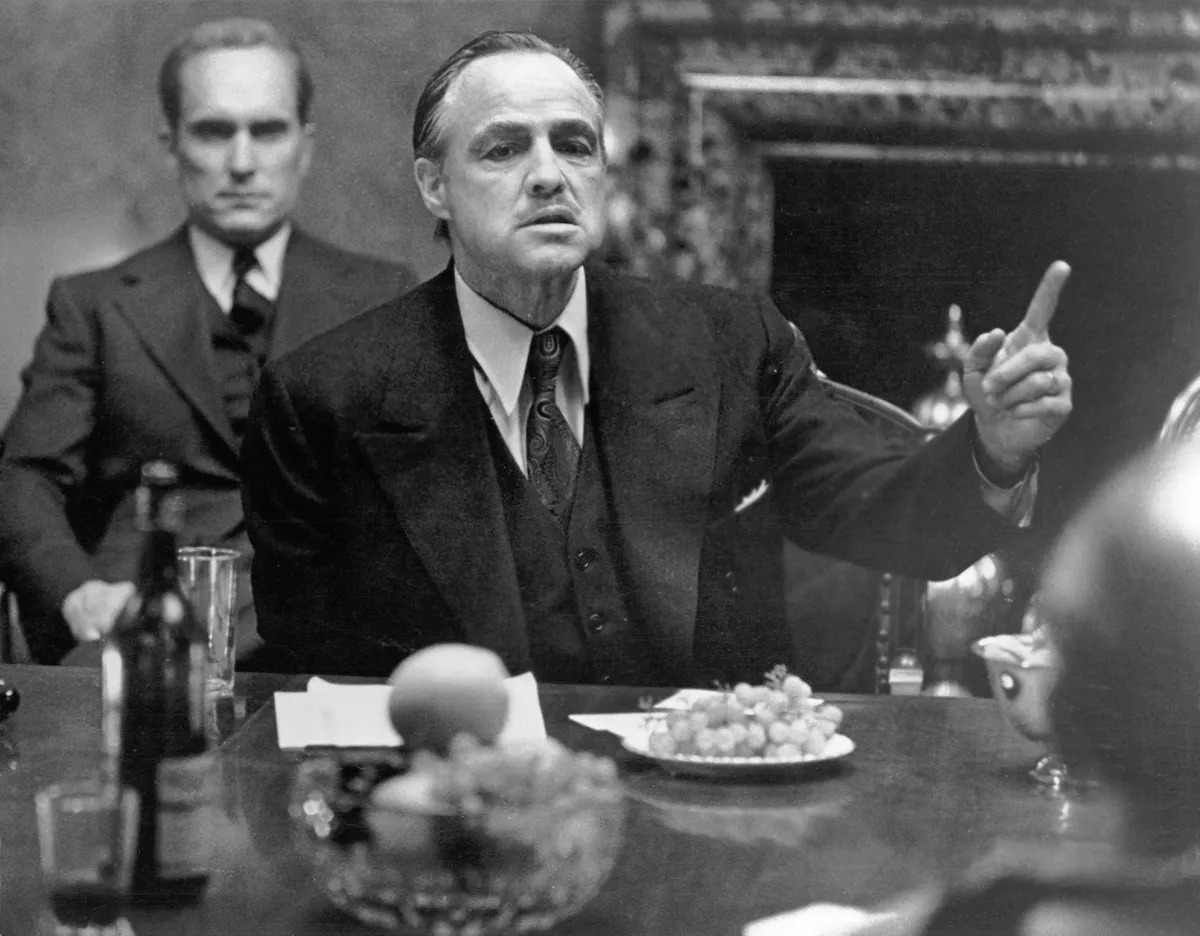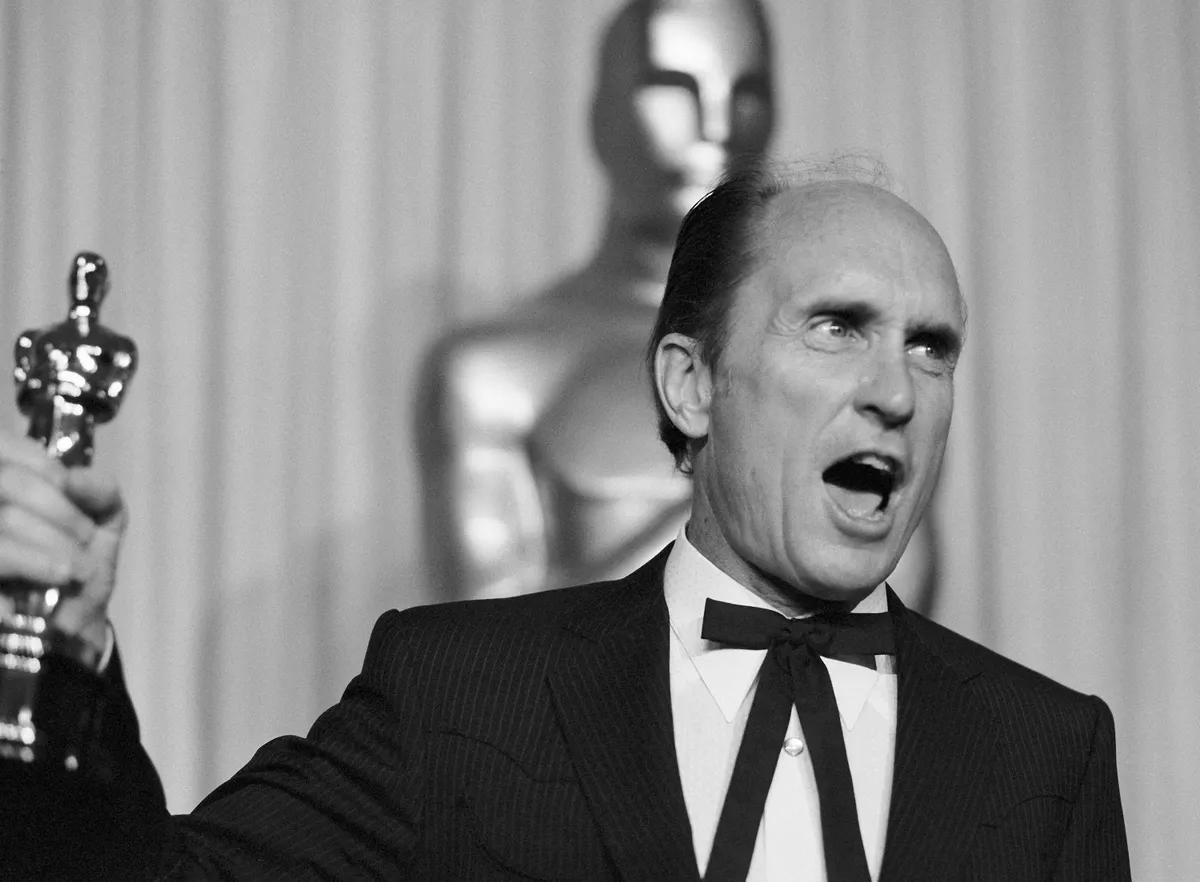It’s an offer you can’t refuse. And yet, when I was invited to spend 15 minutes talking to legendary actor Robert Duvall about his part in cinematic milestone The Godfather, I hesitated. What can you ask about the iconic 1972 crime saga that hasn’t been answered a million times before? And can you even scratch the surface in such a short time with an Oscar-winning actor whose career has spanned 70 years?
Robert Duvall was born in California in 1931 and has appeared in theater, TV and movies since the 1950s. He was in The Twilight Zone and The Outer Limits and Bullitt. He was Boo Radley to Gregory Peck’s Atticus Finch in To Kill a Mockingbird. He shot it out with John Wayne (in True Grit) and Clint Eastwood (in Joe Kidd), beginning a long association with the Western genre. Whether playing coldly violent soldiers, vindictive executives or gruff but avuncular mentors, Duvall has always specialized in bringing a simmering authority to any part.

He won the Academy Award for best actor for 1983’s Tender Mercies, but many of his most unforgettable performances have been supporting roles, from The Conversation, Apocalypse Now, M*A*S*H and Network, to Colors, Days of Thunder, Falling Down and Widows. The 91-year-old will soon be seen in Netflix’s basketball drama Hustle with Adam Sandler, streaming in June, and a crime drama directed by Ed Harris called The Ploughmen.
And of course, Duvall joined Marlon Brando, James Caan, Al Pacino (and Robert De Niro) in The Godfather and The Godfather Part II, directed by Francis Ford Coppola (Duvall declined to appear in Part III because he was unhappy with the money offered). The first film was released in US theaters on March 24, 1972. The behind-the-scenes story, meanwhile, was also full of intrigue and even some real-life mob violence, dramatized in new 10-episode series The Offer starring Miles Teller as producer Albert S. Ruddy, Matthew Goode as then-Paramount head of production Robert Evans, Dan Fogler as Coppola and Justin Chambers as Brando. This fun and fascinating series streams on Paramount Plus from April 28.

I talked to Duvall for a 50th anniversary restoration and rerelease of the trilogy in 4K UHD and digital format. He greets me enthusiastically over Zoom — hearing I’m in the UK, Duvall extols Tyson Fury as maybe the greatest heavyweight in history — and laughs as he remembers talking about The Godfather years ago on the 25th anniversary. Some of his recollections are indeed a little well worn, like his oft-repeated bit about how it would take Marlon Brando a few seconds to get James Caan’s jokes.
But although Duvall admits he hasn’t seen the films lately, like so many of us, he’s stumbled across them on TV. “Sometimes I’ll come across Godfather II a quarter of the way through, and I say, let me watch a little bit. And then I watch the whole thing all the way through. It’s so intoxicating.”
The actor notes that Coppola achieved this masterful filmmaking despite pressure from the suits at movie studio Paramount , who didn’t want to cast Brando or Pacino. “Coppola had to work under duress,” Duvall notes. “I admired him and gained a lot of respect for him because he feared at any moment he might be fired by the studio. But he kept going to make it his vision.”

Duvall worked with Coppola several times, enjoying the freedom he was given. “Coppola wasn’t one of these directors — I’ve worked with a lot of ’em — who say, ‘Do this, do that,'” Duvall explains. “He wanted to see what you bring, to interpret what he’s written down. I call that from ink to behavior: You take what’s written, but you got to put it somehow into organized behavior.”
For example, Duvall cites how he transformed the character of a cartoonish military officer in Apocalypse Now’s script by drawing on his own military experience in the US Army, and on his father, who’d been a rear admiral in the US Navy. The result is the chillingly gung ho Lt. Col. Bill Kilgore, played by Duvall as brimming with specific quirks as he delivers the famous “smell of napalm in the morning” speech.
